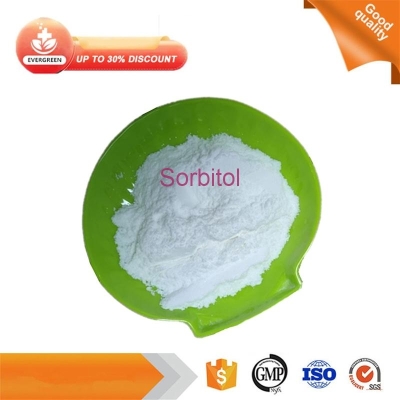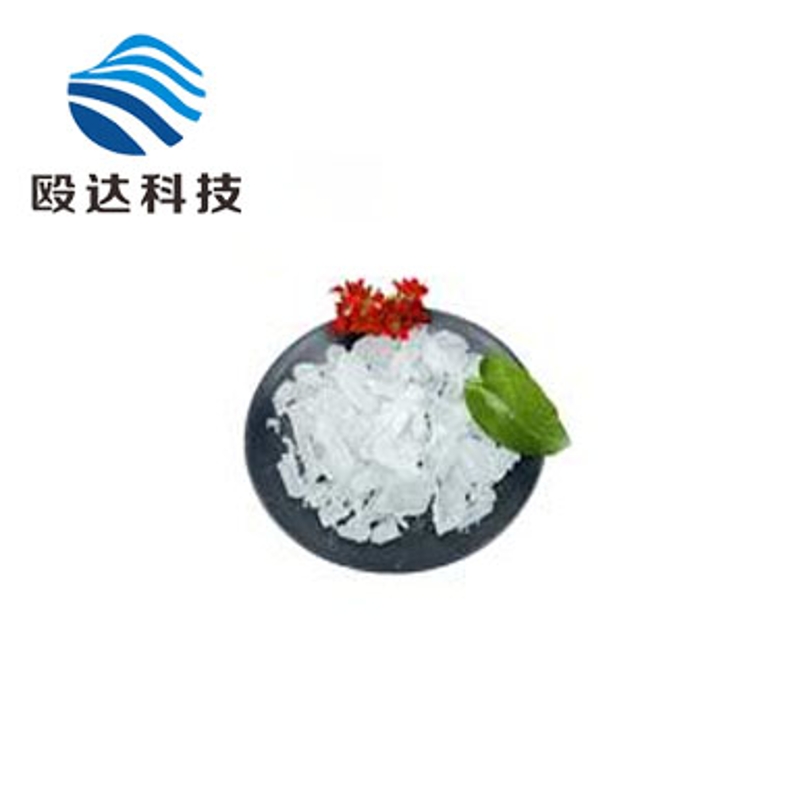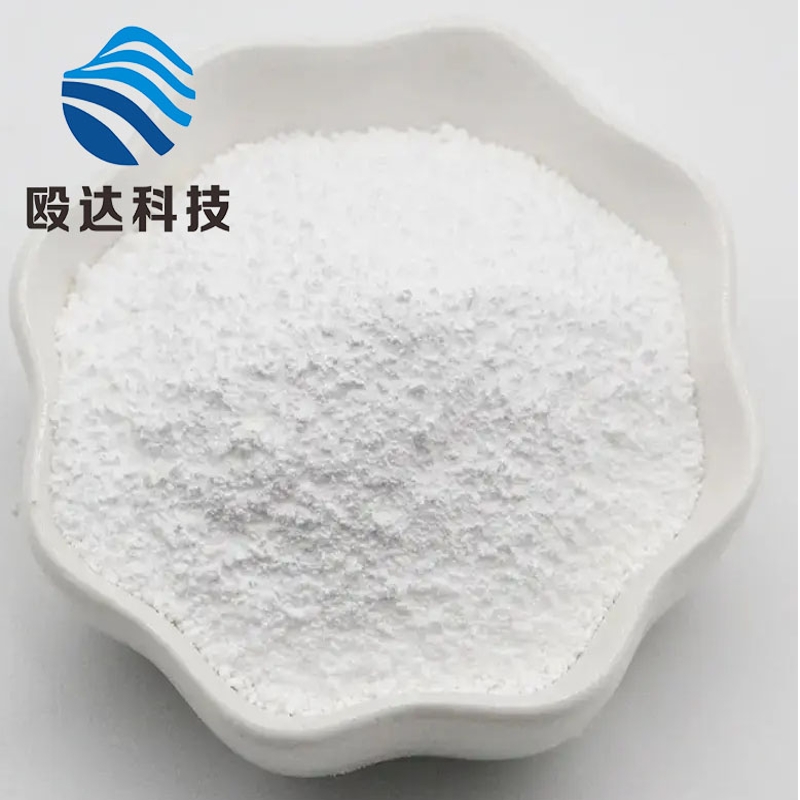-
Categories
-
Pharmaceutical Intermediates
-
Active Pharmaceutical Ingredients
-
Food Additives
- Industrial Coatings
- Agrochemicals
- Dyes and Pigments
- Surfactant
- Flavors and Fragrances
- Chemical Reagents
- Catalyst and Auxiliary
- Natural Products
- Inorganic Chemistry
-
Organic Chemistry
-
Biochemical Engineering
- Analytical Chemistry
- Cosmetic Ingredient
-
Pharmaceutical Intermediates
Promotion
ECHEMI Mall
Wholesale
Weekly Price
Exhibition
News
-
Trade Service
Editor's note The 2022 ASCO-GU ended perfectly, presenting an academic feast for urological oncologists around the world
.
Prostate cancer is a common malignant tumor in men with high morbidity and mortality, which seriously threatens the health of patients
.
Androgen deprivation therapy (ADT) is the basic treatment regimen for prostate cancer, and it is also the basis for various new combination therapy regimens, and it is often required throughout the subsequent treatment of patients
.
Both testosterone (T) and PSA are important predictors of survival in prostate cancer patients during ADT treatment
.
I Maitong is honored to invite Professor Gou Xin from the First Affiliated Hospital of Chongqing Medical University, Professor Liu Jiumin from Guangdong Provincial People's Hospital and Professor Zhang Zheng from Peking University First Hospital to share the application of ADT in prostate cancer for readers
.
Professor Gou Xin, Chief Physician, Chief Physician, Department of Urology, The First Affiliated Hospital of Chongqing Medical University, Doctoral Supervisor, Doctoral Supervisor, Member of the Standing Committee of the Urology Specialized Committee of the Chinese Medical Association, Secretary General of the Oncology Group of the Chinese Medical Association Urology Specialized Committee, Member of the Urology Branch of the Chinese Medical Doctor Association, Chinese Clinical Oncology Standing member of the Prostate Cancer Expert Committee of the Society Chief Chief Physician Member of Urology Branch of Chinese Medical Association Member of Urological Branch of Chinese Medical Association Member of Robotic Physician Branch of Chinese Medical Association Member of Oncology Group of Urological Branch of Chinese Medical Association Deputy Director of the Surgical Branch, Head of the Prostate Group of the Urology Branch of the Guangdong Medical Association, Professor Zhang Zheng, Deputy Director of the Urology Branch of the Guangdong Medical Association Member of the Youth Committee of the Urology Branch (CUA) of the Chinese Medical Doctor Association (CUDA) Deputy Head of the Adrenal Hypertension Surgery Collaborative Group Deputy Head of the China Adrenal Disease Alliance ) Youth Committee Deputy Director Chinese Society of Clinical Oncology (CSCO) Youth Member China Anti-Cancer Association (CACA) Youth Council Executive Director Beijing Anti-Cancer Association Youth Council Executive Director Chinese Society of Clinical Oncology (CSCO) Urothelial Cancer Expert Committee Member, China Research Hospital Association (CRHA) Urology Professional Committee Youth Committee Listening - The love-hate relationship between testosterone and prostate cancer Yi Mai Tong: As early as 1940, Huggins et al first proposed that suppressing testosterone levels could treat metastatic prostate cancer point of view
.
Could you please talk about what role testosterone plays in the occurrence and development of prostate cancer? Prof.
Gou Xin: Androgens in men mainly include testosterone, dehydroepiandrosterone, androstenedione and androsterone, among which testosterone is the main androgen, which is controlled and regulated by the hypothalamic-pituitary-gonadal axis
.
The hypothalamus secretes gonadotropin-releasing hormone (GnRH) to the anterior pituitary, and then the anterior pituitary produces luteinizing hormone (LH), which acts on Leydig cells to secrete testosterone
.
Testosterone plays a huge role in the development of sexual organs, the maintenance of sexual function and muscle mass, and the maintenance of bone density and strength
.
The vast majority of testosterone in plasma exists in a bound form, and only about 2% of testosterone exists in a free form, and free testosterone is the main biologically active substance
.
After serum testosterone enters the prostate, it can be converted into dihydrotestosterone directly or through the action of 5-alpha reductase to activate the androgen receptor, and then play a role in regulating the growth and function of the prostate
.
In 2018, Watts et al analyzed 20 included prospective studies and found that low serum free testosterone levels were associated with a lower overall risk of prostate cancer (OR=0.
77, 95%CI 0.
69-0.
86, P<0.
001 )
.
Yi Mai Tong: In recent years, the view of "deep ketone reduction" has been put forward by many scholars
.
Could you please talk about what is meant by "deep ketone reduction"? What is the significance of "deep ketone reduction" for the treatment of prostate cancer? Professor Gou Xin: The standard of castration level recognized in early research and clinical practice is T<50 ng/dL, which is determined by the detection method
.
With the accumulation of evidence-based medical evidence and the upgrading of medical equipment, the researchers found that the clinical outcome of T levels in the range of 20-50 ng/dL was worse than that of patients with T < 20 ng/dL.
Therefore, it is recommended to change the standard of castration level Defined as T<20 ng/dL
.
In recent years, domestic and international consensus guidelines have included T < 20 ng/dL in the recommendation: the 2018 Canadian consensus pointed out that for recurrent and metastatic prostate cancer testosterone suppression therapy, it is recommended to control T below 20 ng/dL as the level of judging castration.
The 2020 EAU guideline recommends that T<20 ng/dL is a more ideal castration level; the 2021 "Chinese Expert Consensus on Testosterone Management in Prostate Cancer" points out that after testosterone reaches the castration level, reduce testosterone to a lower level (T<20 ng/dL) can be used as a reference standard for judging better prognosis and adjusting treatment in patients with prostate cancer
.
Exploration - the status and benefits of ADT in prostate cancer Yimaitong: ADT is the basic drug for prostate cancer treatment.
Could you please introduce the benefits of ADT? Professor Zhang Zheng: ADT is the basic drug for prostate cancer treatment.
Whether it is new endocrine therapy, chemotherapy or targeted therapy, it needs to be combined with ADT for treatment
.
Although abiraterone can completely block the formation of testosterone, if it is used as a single drug to achieve the effect of inhibiting androgen, the dose will be significantly increased, and the toxic and side effects will be stronger, so it needs to be combined with ADT to exert the effect
.
ADT mainly includes GnRH agonists (GnRHa) or antagonists, of which GnRHa is the most commonly used ADT drug in clinical practice, including triptorelin, goserelin and leuprolide
.
Previous studies have shown that 6 months of triptorelin treatment can maintain T levels <20 ng/dL in 90% of prostate cancer patients for 12 months or more
.
In addition, triptorelin 6-month sustained-release formulation can significantly reduce the number of patient visits, injections and PSA examinations, and the cost of visits for one year of treatment can be reduced by 46.
8%.
In today's epidemic era, it brings higher benefits to patients
.
Yi Mai Tong: The 2022 ASCO-GU ended successfully in February.
Could you briefly talk about the progress in the field of prostate cancer endocrine therapy in ASCO-GU? What is the status of ADT? Prof.
Zhang Zheng: At this ASCO-GU conference, the hot topic of discussion was the progress of combined therapy
.
PROpel study suggests that olaparib + abiraterone + prednisone compared with placebo combined with abiraterone + prednisone can significantly improve first-line metastatic castration-resistant prostate cancer ( Radiographic progression-free survival (rPFS) in patients with mCRPC); the ARASENS study compared dalotamide + docetaxel + ADT versus placebo + docetaxel + ADT in patients with metastatic hormone-sensitive prostate cancer (mHSPC) efficacy and safety with promising results
.
It can be seen that combination therapy has become the research trend of advanced prostate cancer
.
It should be noted that the patients enrolled in the PROpel study were not previously treated with abiraterone, and the HRR status was indistinguishable, demonstrating that patients with or without HRR mutations could benefit from this triple therapy
.
Whether this result will change the guidelines needs further exploration
.
In addition to triple therapy, sequential therapy has also been studied
.
The PRESIDE study confirmed that enzalutamide-progressed mCRPC patients had PFS benefit after sequential treatment with enzalutamide + docetaxel + prednisone, providing a new idea for the diagnosis and treatment of prostate cancer
.
Professor Liu Jiumin: From the perspective of ASCO-GU, ADT is the basic treatment plan for locally advanced or metastatic prostate cancer, and drug castration is its core treatment method
.
In this ASCO-GU conference, we can see that whether it is double or triple therapy, or other combination methods, all of them are inseparable from the use of ADT, and ADT has always occupied the cornerstone position
.
At the same time, in patients with localized prostate cancer, ADT combined with radiotherapy can also benefit the patients
.
Yimaitong: Based on the cornerstone status of ADT, can you talk about the benefits of ADT in prostate cancer in conjunction with ASCO-GU? Professor Liu Jiumin: At this conference, the third analysis of the FINITE trial confirmed the benefit of GnRHa in prostate cancer
.
CONCLUSIONS: Compared with GnRHa alone, GnRHa plus abiraterone had a longer median time to PSA progression (TTPP) in biochemically recurrent non-metastatic hormone-naïve prostate cancer (M0HNPC) patients (27.
2 vs 19.
9 months, P =0.
003)
.
In addition, the subgroup analysis results of the HERO study confirmed that ADT has a significant effect on reducing ketone.
The rate of maintaining castration level (<50ng/dL) in both the test group and the control group at 48 weeks was 93.
3%.
Castration level suppression (53% vs 0%) and testosterone castration suppression at day 15 (97% vs 13%) and deep ketone reduction at day 15 (67% vs 6%) were superior
.
In clinical practice, we also found that patients with a survival time of more than 10 years received ADT throughout the whole process
.
We give patients an intermittent treatment plan.
ADT treatment can be suspended when the disease is stable, and ADT treatment can be given when the disease progresses, so that the patient's disease can be controlled and the quality of life can be guaranteed, thereby achieving higher benefits
.
Prospects - GnRHa has significant ketone-lowering effect Yimaitong: "Deep ketone-lowering" is being used in clinical practice by urologists.
Please talk about which one of the three GnRHa has the most significant ketone-lowering effect? Professor Gou Xin: Triptorelin, goserelin and leuprolide are the most commonly used ADT drugs, and the three-month dosage form of triptorelin is the most commonly used in clinical practice
.
A retrospective analysis comparing the changes in testosterone levels over 9 months of three-drug treatment showed that, of 125 patients, all patients in the triptorelin-treated group (either in the overall population or in the monotherapy subgroup) were in Testosterone levels were reduced to <20 ng/dL at both 6 and 9 months
.
In addition, the triptorelin 3-month formulation reduced testosterone levels to <10 ng/dL in the highest proportion of the three drugs: 34.
6% in the goserelin group and 89.
5% in the triptorelin group at 9 months , leuprolide was 83.
3%
.
It can be seen that the deep ketone-lowering effect of triptorelin deserves more attention
.
Editor's Note Today, the concept of "deep ketone reduction" has become more and more popular.
Testosterone management is an important part of the diagnosis and treatment of prostate cancer, which runs through the diagnosis, evaluation, treatment and prognosis evaluation of prostate cancer
.
According to the recommendation of the Chinese Expert Consensus on Testosterone Management in Prostate Cancer (2021 Edition), standardized monitoring of testosterone should be carried out in clinical work, and changes in the condition should be detected in time, so that patients can obtain the highest benefit at the lowest cost
.
Approval Number: DIP-CN-008313 Valid until 12/4/2024 Editor: Bing Xin Reviewer: Bing Xin Execution: LR







